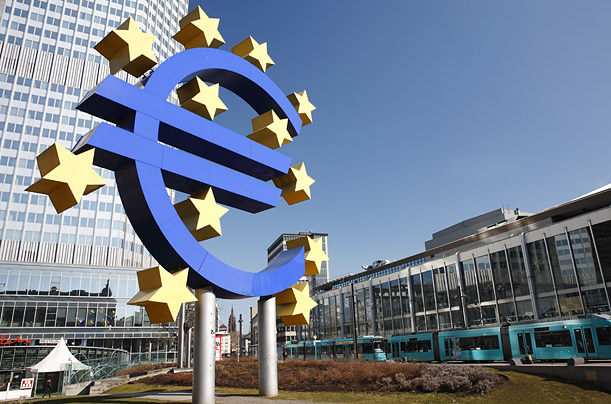THE European Union could advance a total of $318 million later this year under the National Indicative Programme if the bloc decides to lift sanctions it imposed on Zimbabwe in 2002 in the wake of ongoing efforts to normalise frosty relations with Harare.
Addressing the 11th European Development Fund Programming exercise workshop yesterday, Finance and Economic Development Minister Patrick Chinamasa said Government had faith that sanctions on Zimbabwe under Article 96 of the Cotonou Agreement would be lifted, as promised, on November 1 2014.
"We have faith that the lapse of Article 96 sanctions would, as promised by the European Union, pave way for normalisation of economic relations between Zimbabwe and the European Union," said Minister Chinamasa.
"Given the extensive discussions that we have conducted with the European Union, I have no doubt the promises given for assistance under the 11th European Development Fund would be honoured," the Minister said.
Head of the EU Delegation to Zimbabwe Ambassador Aldo Dell'Ariccia said the bloc is committed to normalisation of relations as demonstrated by yesterday's engagement of civil society.
"The EU remains committed to re-engaging with Zimbabwe and today we have the evidence of the re-engagement in action. Today's consultations with civil society organisations and Members of Parliament represent a key step in the process of finalising the National Indicative Programme that will help to improve the lives of ordinary Zimbabweans," said Ambassador Dell'Ariccia.
Minister Chinamasa said Treasury has already started formulating an Aid Co-ordination Architecture in light of the commitment by the EU to normalise relations with Zimbabwe. The Aid Co-ordination Architecture will be discussed with the EU.
"Thirdly, we have faith that full restoration of relations, would, as again promised by the European Union, entail direct engagement under the 11th European Development Fund between the Government of Zimbabwe and the European Union," he said.
The health sector will receive €88 million, €88 million towards agriculture-based Economic Development, Governance and Institution Building - €45 million, Civil Society -€6 million, National Authorising Office -€3 million and Technical Co-operation Facility - €4 million according to the draft NIP.
Minister Chinamasa urged the EU to fulfill its commitment to lift the sanctions and release the much needed funds to Zimbabwe.
The process for the NIP entailed a two phased approach, with the first phase already undertaken and which resulted in a Country Strategy Paper (CSP) that was approved by the EU in July 2013.
The CSP outlines Government's choice of three main areas of co-operation for the period 2014-2020 which are health, agriculture-based economic development and governance and institution building.
The second and final phase of the programming exercise, which commenced on 23 January 2014, entailed drafting of an NIP, which will guide co-operation between the Government and the EU.
"In line with our economic blue print, the Zimbabwe Agenda for Sustainable Socio-Economic Transformation (Zim-Asset), our engagement with the European Union in the health sector seeks to increase the protection against health threats, to strengthen and further develop the national health system and to reduce inequalities in access to quality health services," said Minister Chinamasa.
The interventions towards agriculture-based economic development are aimed at improving the policy framework for sustainable agricultural growth, natural resources management and enhancing competitiveness of the agriculture sector.
In Governance and Institution building, the objective is to support the implementation of public finance management reforms, support for the rule of law through strengthening the judicial system and increased access to justice.
The consultative workshop was also attended by other ministers for Justice, Legal and Parliamentary Affairs, Emmerson Mnangagwa; Information, Media and Broadcasting Services, Professor Jonathan Moyo; Agriculture, Mechanisation and Irrigation Development, Dr Joseph Made and Health and Child Welfare, Dr David Parirenyatwa and other senior Government officials.
Officials from the World Bank, the African Development Bank, Ambassadors of the European Union Member States, Heads of United Nations Agencies and representatives of the Civil Society also attended the workshop.
- The Herald
 Concern over Masvingo black market
Concern over Masvingo black market  Kenya declares three days of mourning for Mugabe
Kenya declares three days of mourning for Mugabe  UK's Boris Johnson quits over Brexit stretegy
UK's Boris Johnson quits over Brexit stretegy  SecZim licences VFEX
SecZim licences VFEX  Zimbabwe abandons debt relief initiative
Zimbabwe abandons debt relief initiative  European Investment Bank warms up to Zimbabwe
European Investment Bank warms up to Zimbabwe  Young Investment Professional (YIP) Graduate Programme 2019
Young Investment Professional (YIP) Graduate Programme 2019 











 Young Investment Professional (YIP) Graduate Programme 2019
Young Investment Professional (YIP) Graduate Programme 2019
Editor's Pick